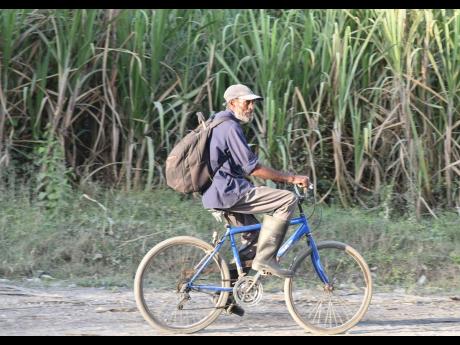Pan Caribbean shelves bio-energy project
Sugar producer cites unfavourable price from monopoly electricity distributor as main reason
WESTERN BUREAU:
PLANS BY the Chinese-owned Pan Caribbean Sugar Company to produce energy for sale to the national grid have failed to materialise some eight years after the project was first announced.
According to Delroy Armstrong, senior assistant to Hong Han, chairman and CEO of Pan Caribbean Sugar Company, a significant portion of the initial investment of $126 million has been spent on the acquisition of state-of-the-art equipment to build out the energy-generation plant that would produce electricity from bagasse, the waste that remains after the juice is extracted from sugar cane. But now all the equipment and structure earmarked for the energy plant is set to gather rust as the company has decided to scrap the project.
Armstrong told The Gleaner that Pan Caribbean had come to Jamaica with the intention of developing multiple-revenue streams, chief among them being the generation of electricity for sale to the Jamaica Public Service Company (JPS), the island’s monopoly distributor of electricity.
“We actually install substations which would facilitate us producing electricity and connecting to the grid. We spend significant sums, employing consultants to do studies to facilitate the construction of intermediary powerlines to the grid,” Armstrong said as he outlined the scope of Pan Caribbean’s investment so far to produce and sell energy to the JPS.
“We also engaged JPS in numerous discussions in order for us to secure a power purchase agreement. The problems that we faced were consequent [with] us not being able to put ourselves in a position where we could provide JPS with a power supply all year-round,” he disclosed in an interview with The Gleaner.
“The position that we found ourselves in, we could only guarantee to provide electricity for sale during the cropping period, and maybe shortly thereafter and so the discussions basically fell apart.”
Importantly, Armstrong revealed that the price being offered by JPS under the power purchase agreement was not attractive and contributed to the decision by Pan Caribbean to abandon the investment.
“The prices that were being offered to us didn’t make it favourable, though we had spent all that money already and because of what happens in the industry where the quantity of cane production has diminished over time,” the Pan Caribbean executive said.
“That also inhibited our ability or confidence that we would be in a position to guarantee a certain quantity of electricity all year-round.”
Despite the setback with the energy-generation project, Pan Caribbean said it was still amenable to pursuing a feasible deal.
“If the possibility exists that could still happen we would be in a position to take advantage of it if the price is right, and the conditions are right because the infrastructure is there,” he said.
The Pan Caribbean Sugar Factory, which is based in Frome, Westmoreland, currently has a generating capacity of 15 megawatts, of which approximately seven megawatts are used up during the crop season. In the off-season, just about three megawatts are used. The excess, Pan Caribbean said, is what would be sold to the national grid.

